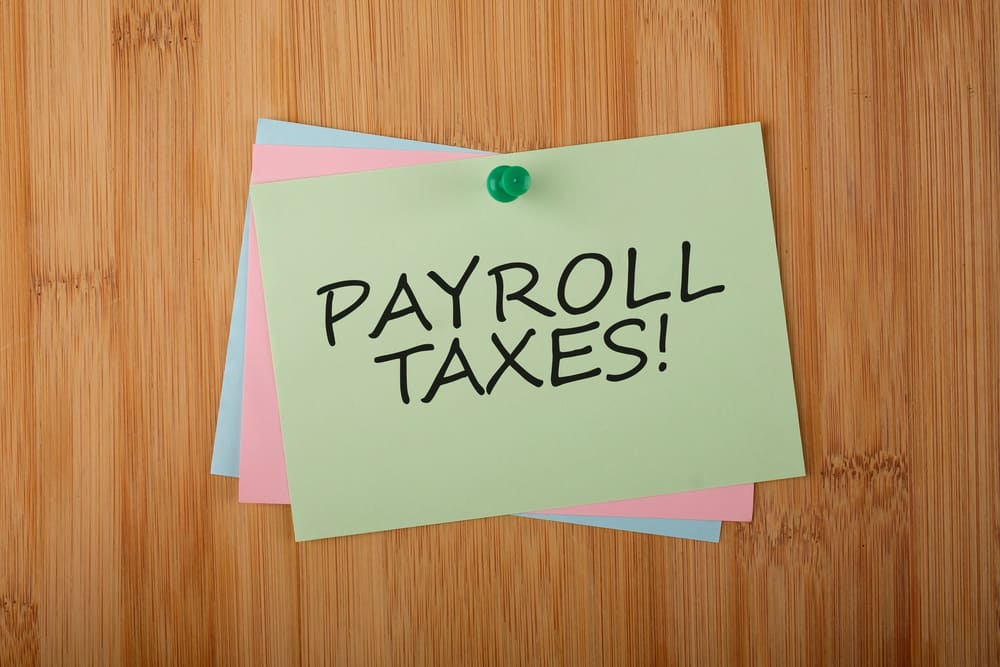In the UK, businesses have taxation and payroll rules and regulations they must adhere to.
Businesses will need an understanding of their employee’s individual tax requirements, which includes:
- Social insurance taxes
- Disability insurance
- Corporation tax
- Employer’s liability insurance
- VAT
Employers will typically need to register for PAYE as part of their payroll procedures.

What Is PAYE?
HMRC implemented a system in the UK called PAYE. This makes it easier to collect income tax from an employee.
There are some exemptions from PAYE. However, all businesses must keep payroll records regardless.
Records that must be kept include:
- Employee payments
- Employee payment deductions
- HMRC reports
- HMRC payments
- Employee sickness absences
- Employee leave
- Tax code notices
- Taxable benefits or expenses
- Payroll Giving charity schemes
Records must be kept for a minimum of 3 years. Failure to keep these records can lead to HMRC estimating what is owed and penalties of up to £3,000.
The Pay As You Earn (PAYE) system was designed to streamline the collection of income tax and National Insurance.
PAYE payroll software is used to calculate deductions in most cases. Manual payroll systems will benefit from using National Insurance and PAYE tax calculators.
Tax codes are used by employers to calculate the tax they must deduct from their employee’s pay. This tax code tells the employee what earnings the employee is entitled to earn tax-free. This will include the personal allowance amount.
PAYE is an estimated amount spread over the course of a year. National Insurance contributions are based on percentages of earnings that exceed the primary threshold.
Income tax is based on annual earnings. Whereas, National Insurance contributions are calculated on individual paydays.
PAYE payments
Employers must include the employee’s wages including bonuses and tips when paying through payroll. Maternity or statutory sick pay should also be included.
PAYE deductions
Employees must deduct National Insurance and tax from their employee’s salary. Employers must also make deductions for student loan repayments or pension contributions.
Reporting To HMRC
Payments and deductions must be reported to HMRC. This needs to be done prior to or on the payday.
Specialist payroll software is available that will help you calculate the National Insurance and tax owed. It will also work out employer contributions for National Insurance that must be made.
As well as reporting payments and deductions to HMRC, employers must report new hires or changes in employee circumstances.
Setting Up Payroll
When setting up payroll for an employee there is some essential information that must be included. The HMRC website is an invaluable source of information for further details on income brackets.
Other information required for setting up payroll includes:
Employee details
- Name
- Date of birth
- Gender
- Address
Employee tax and N.I. information
- National Insurance number
- Student loan details
- Tax code
- Tax registration details
- Social security details
Employment information
- New employee documentation
- Statement of employment
- Pension scheme details
- Corporate Income Tax Rate
FAQs
When are businesses not required to register for PAYE?
Businesses do not need to register for PAYE if they have no employees earning over £123 per week.
Businesses are exempt if their employees receive pensions, work other jobs, or claim benefits and expenses.
What is meant by taxable wages?
The portion of an employee’s wages that is taxable includes what is earned after the personal allowance threshold.
What is the difference between National Insurance contributions and social security tax?
Social Security taxes are known are called National Insurance contributions in the UK. They go towards social security benefits and pensions.
Conclusion
Paying income taxes in the UK is required of businesses and employees that meet certain criteria.
The government revenue raised from taxes goes towards a number of public services. These include healthcare and education systems.
Employers pay HMRC income tax and National Insurance contributions based on their employee’s earnings and circumstances.
If a business fails to do this they face stiff penalties. Investing in specialist software or an experienced accountant will help to ensure accurate reports are delivered to HMRC. It will also ensure the correct amount is deducted from an employee’s pay.
Sources
https://www.freshbooks.com/en-gb/hub
https://squareup.com/gb/en/glossary
https://www.sumup.com/en-gb/invoices/dictionary/
https://www.gov.uk/paye-for-employers
https://www.freshbooks.com/en-gb/hub/taxes/payroll-tax
https://www.gov.uk/paye-for-employers/keeping-records